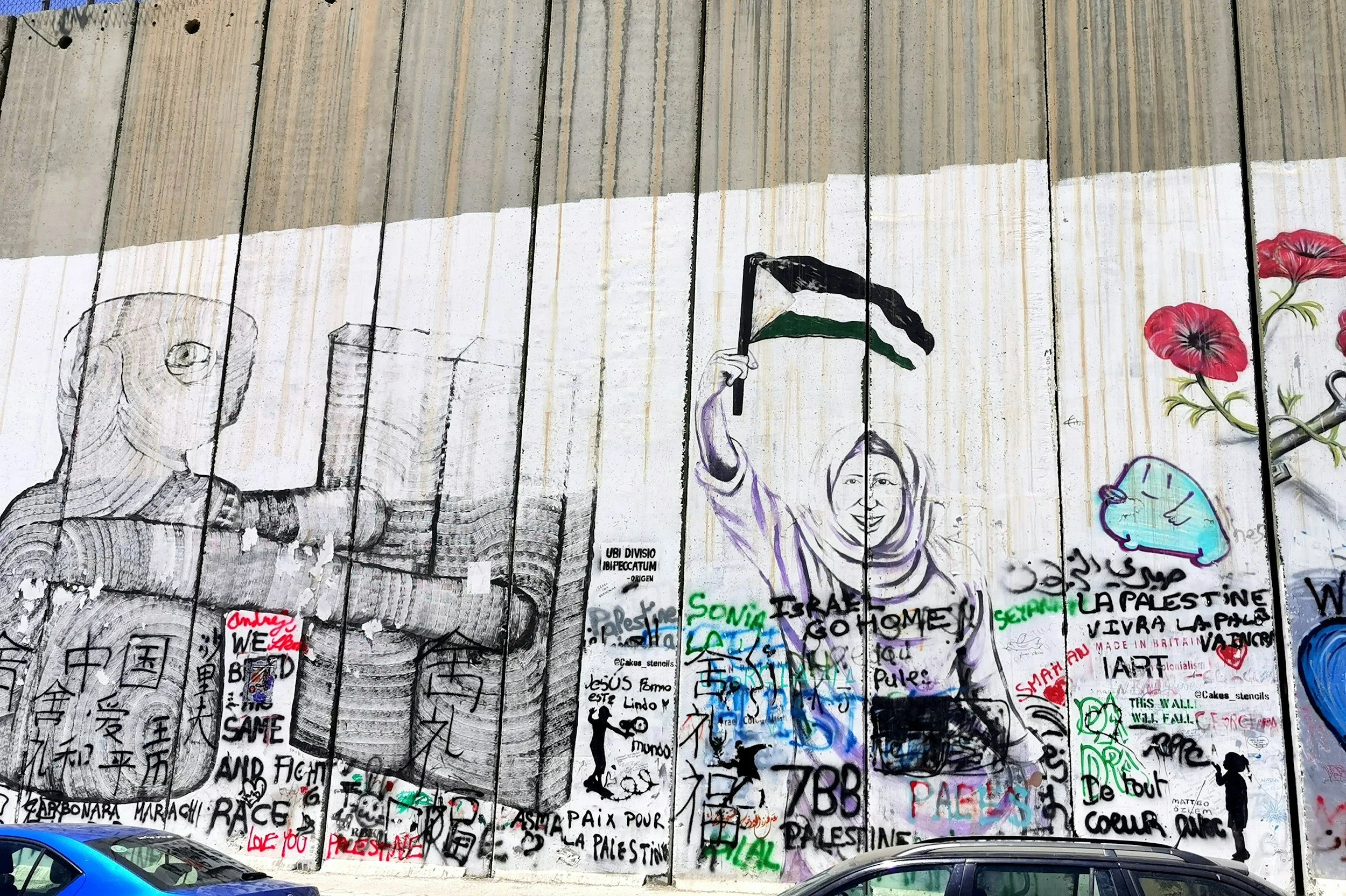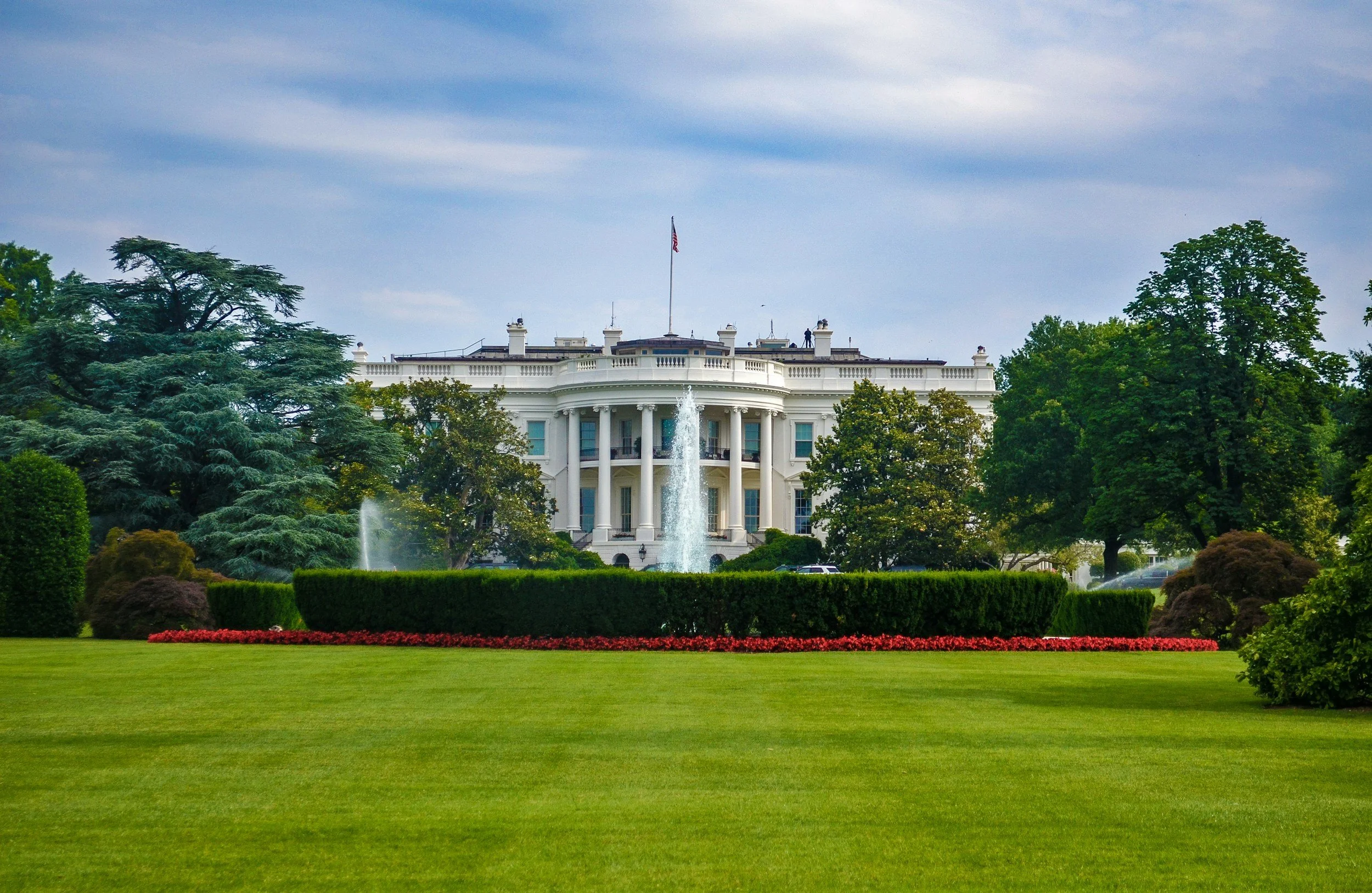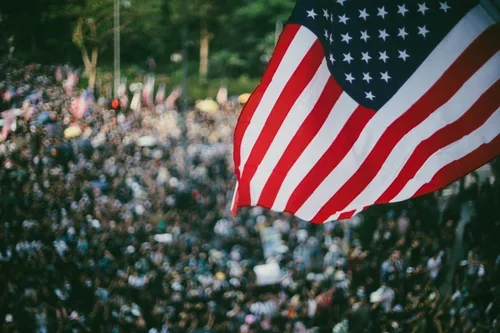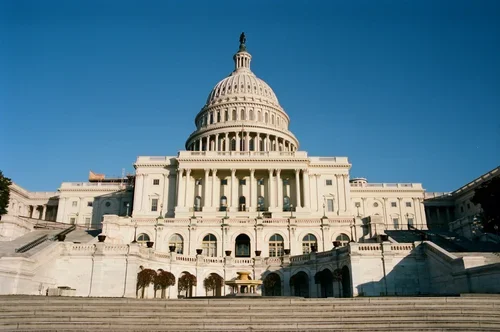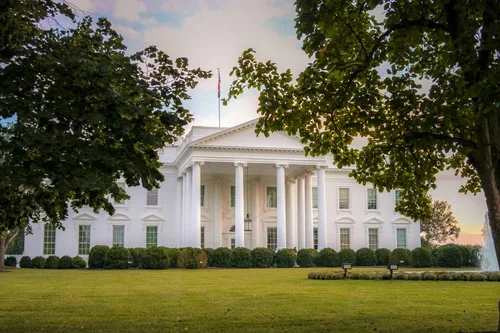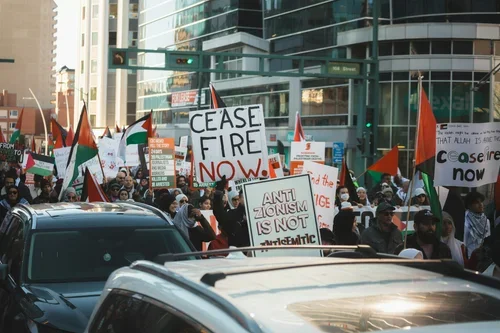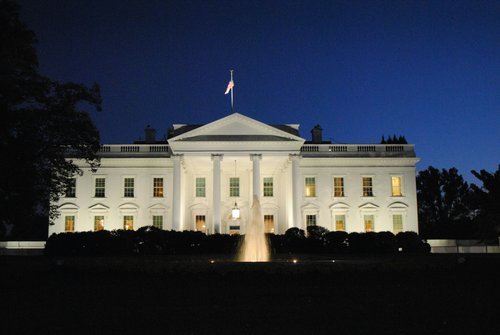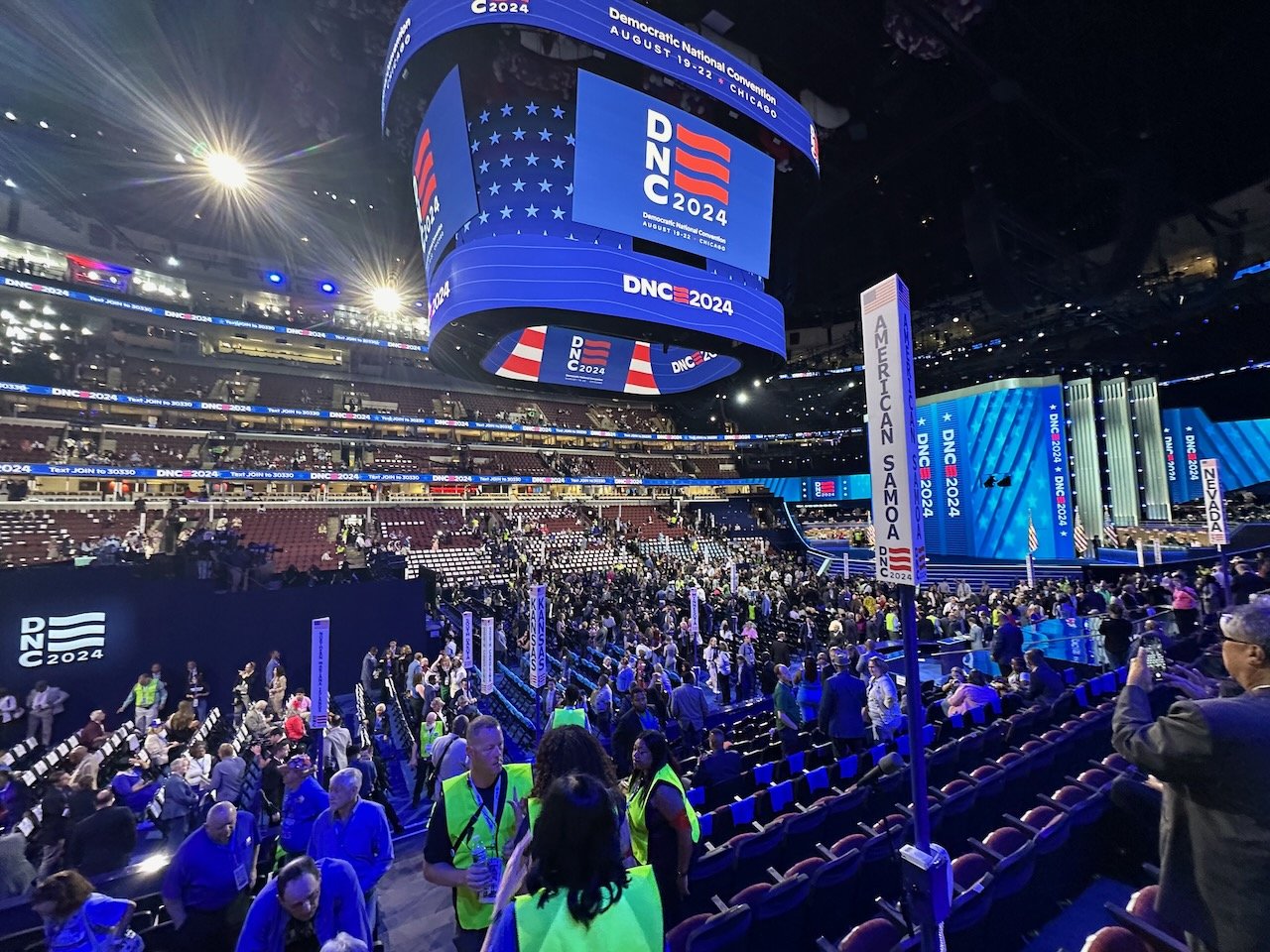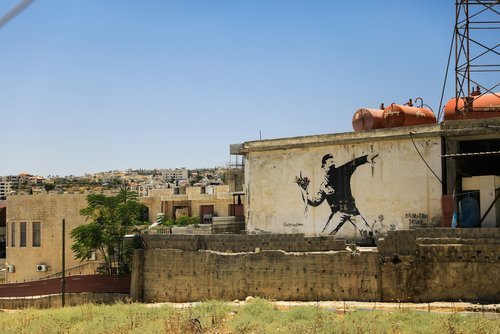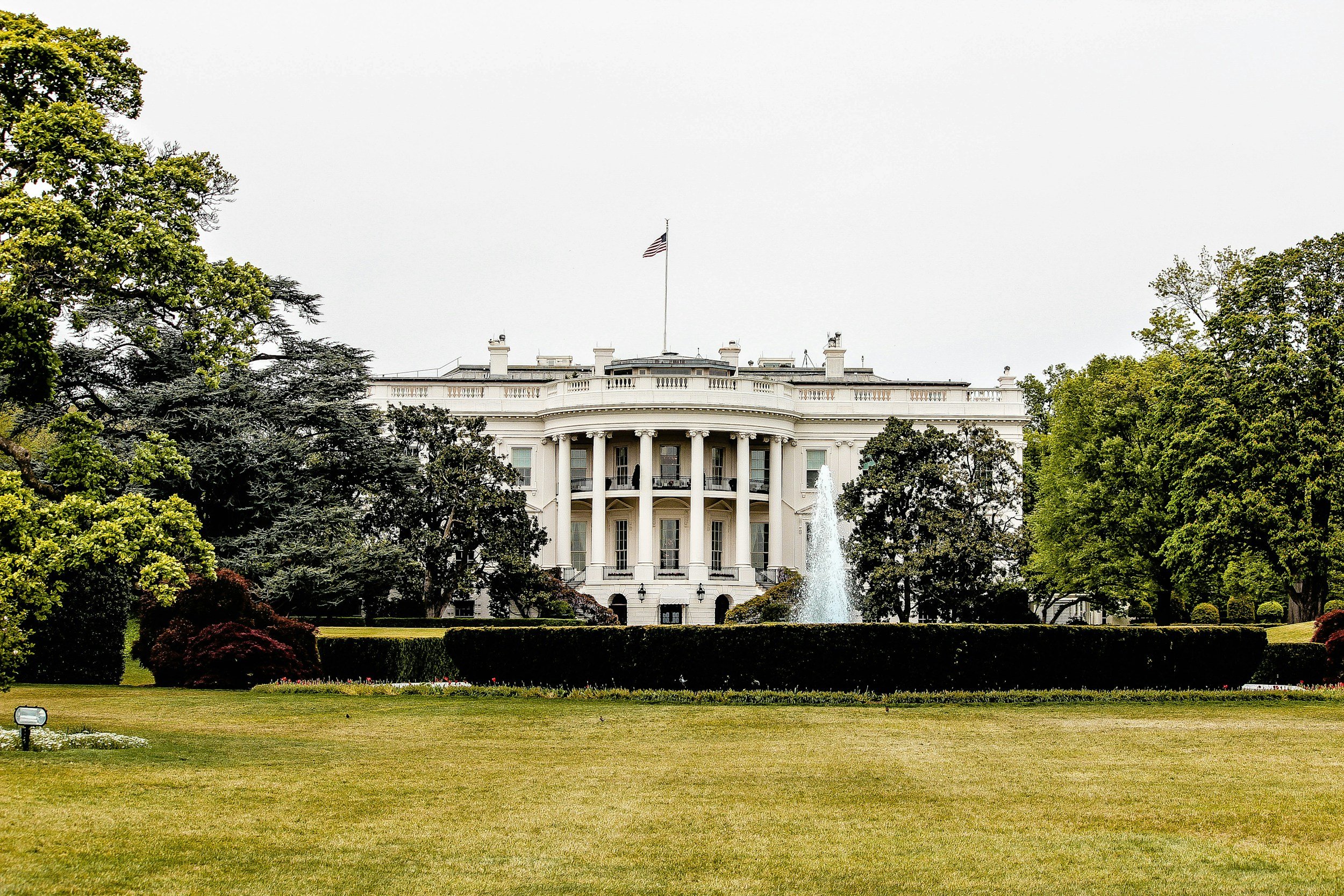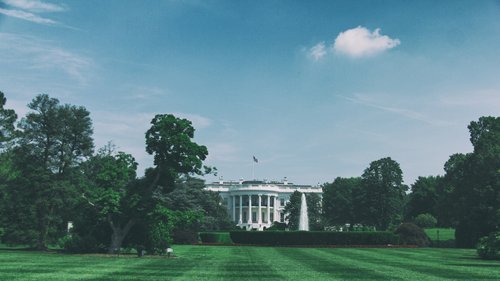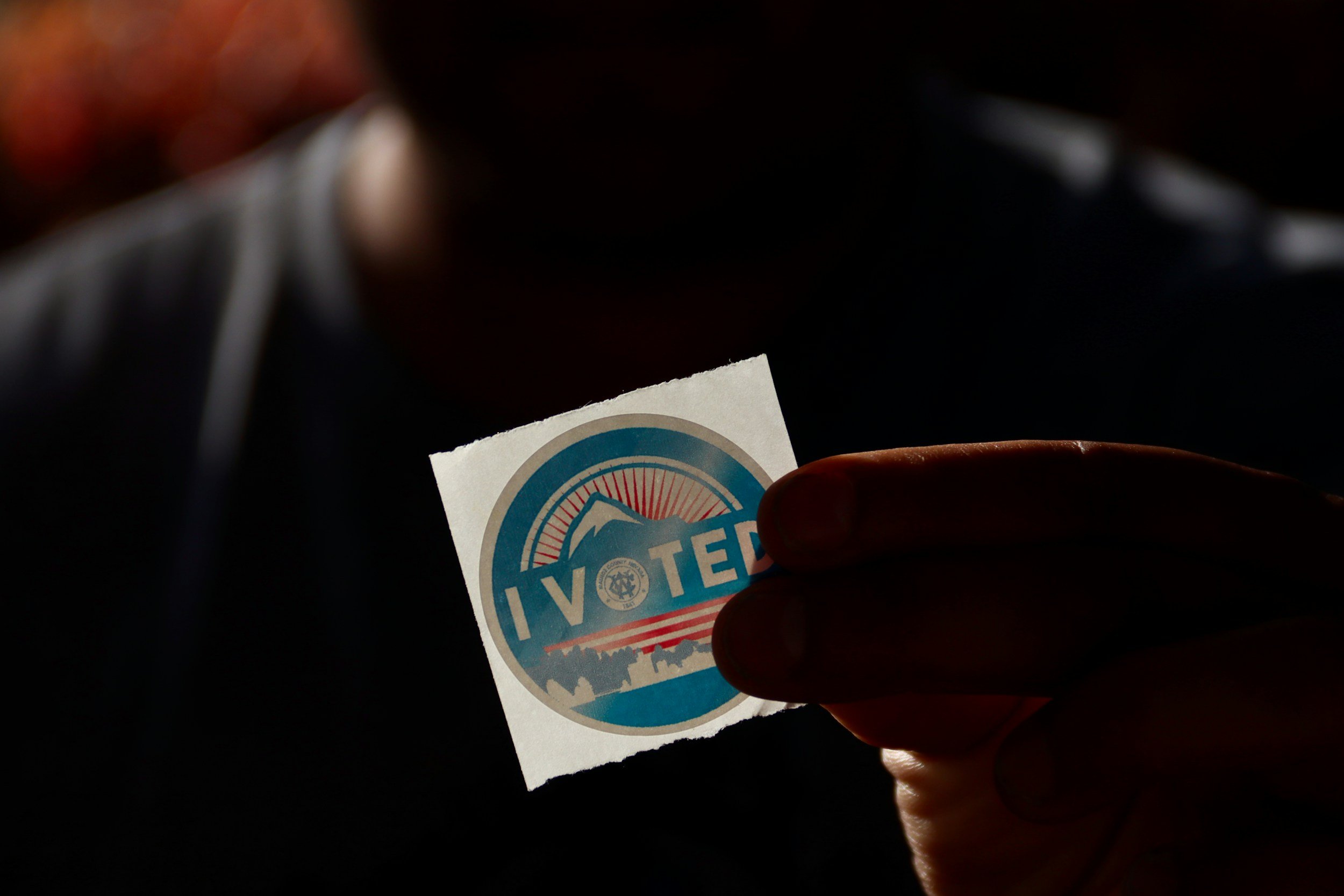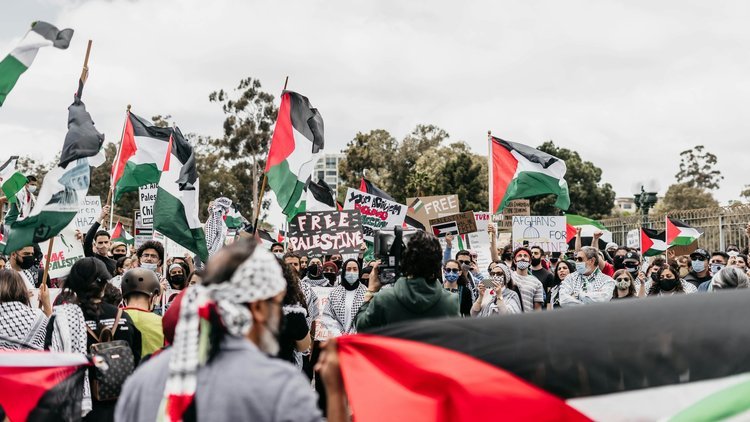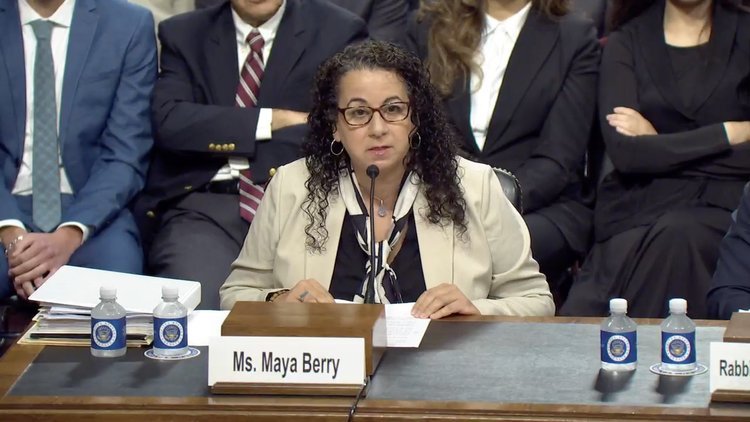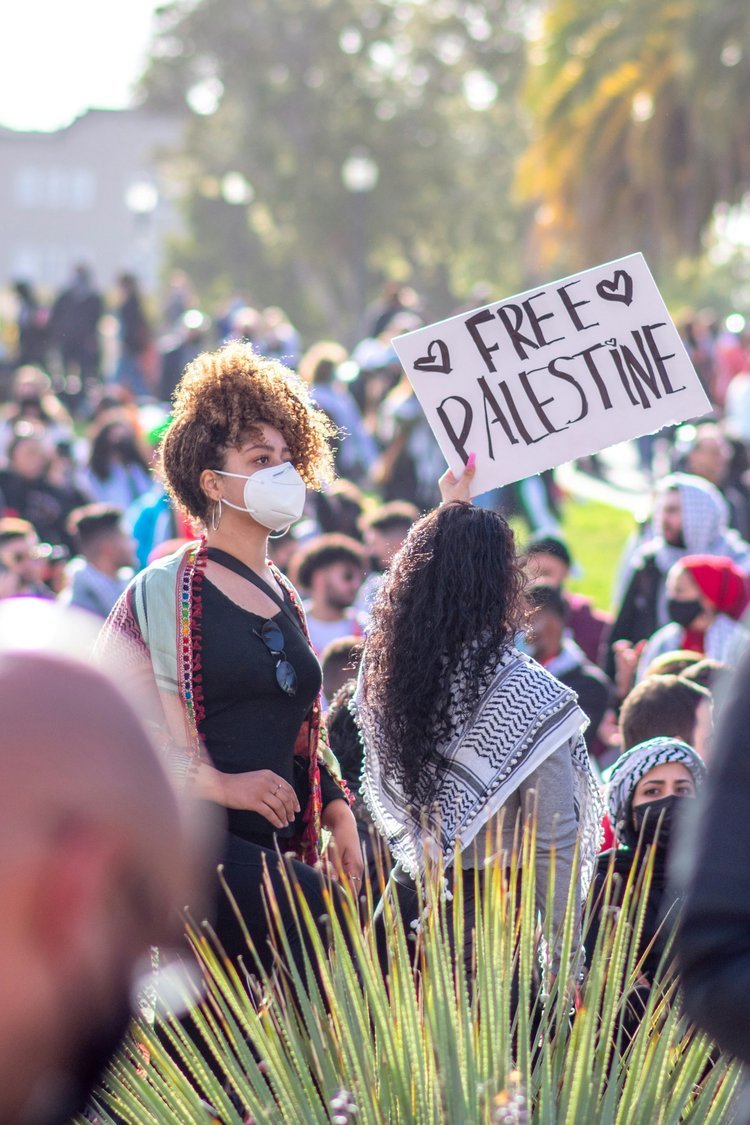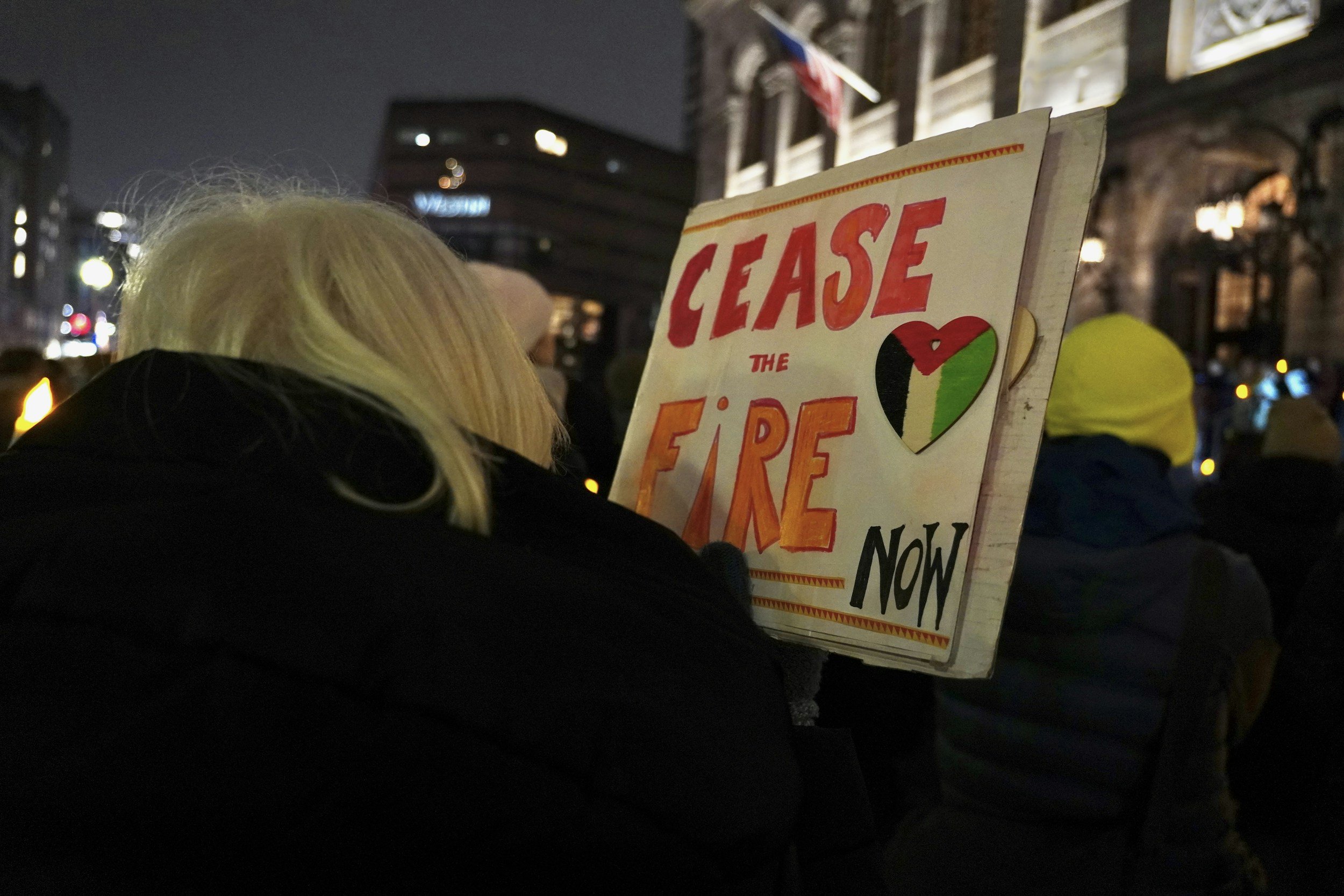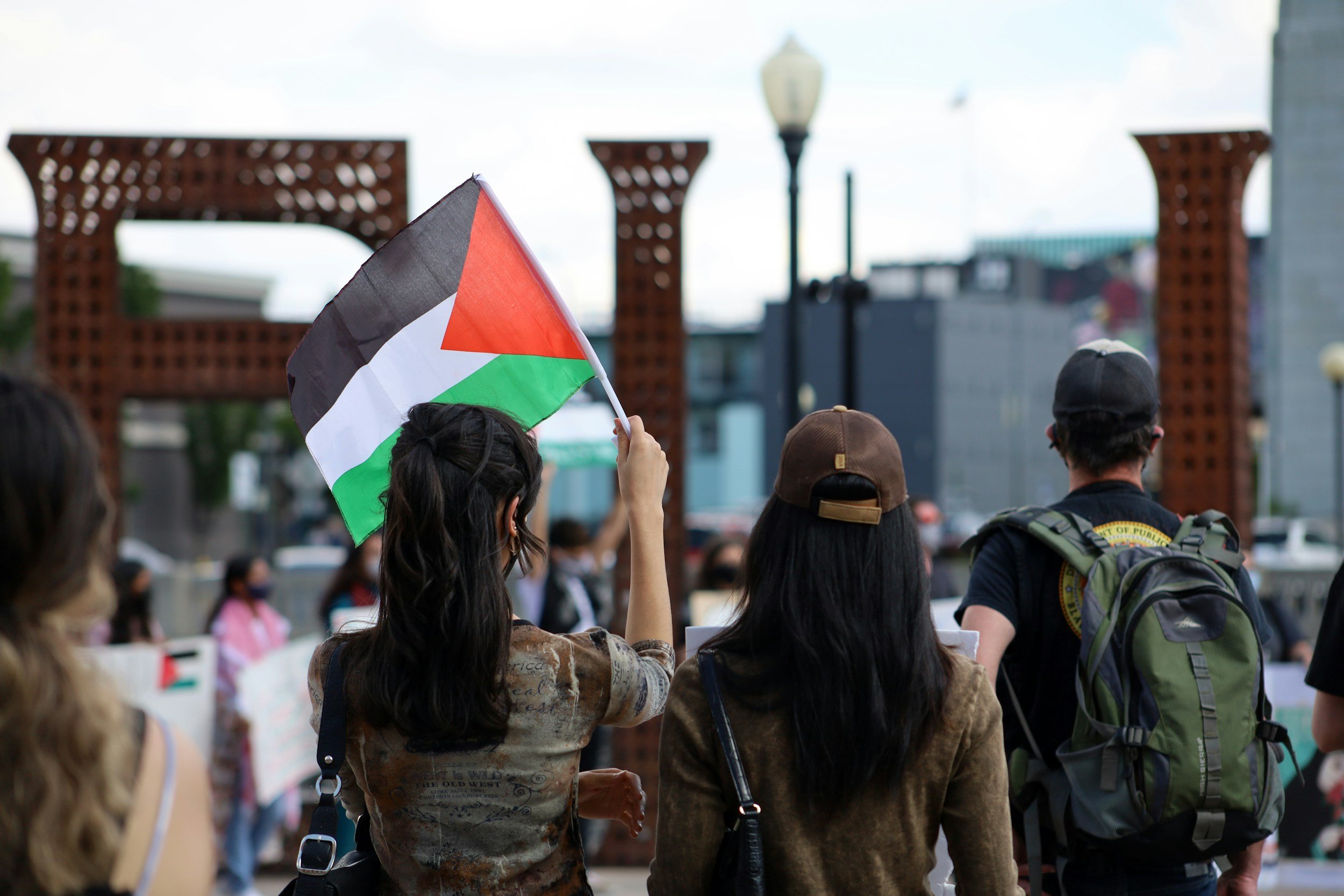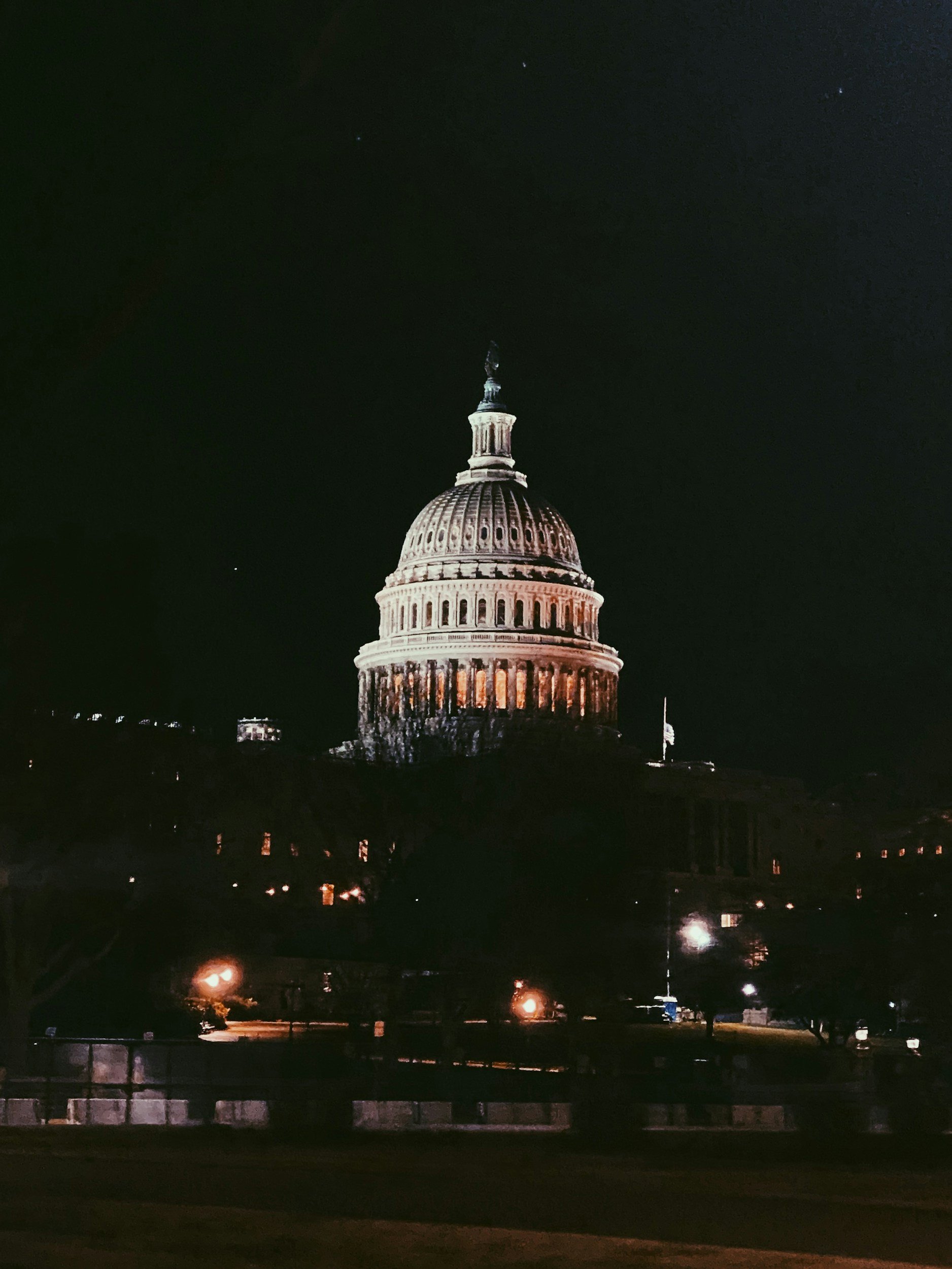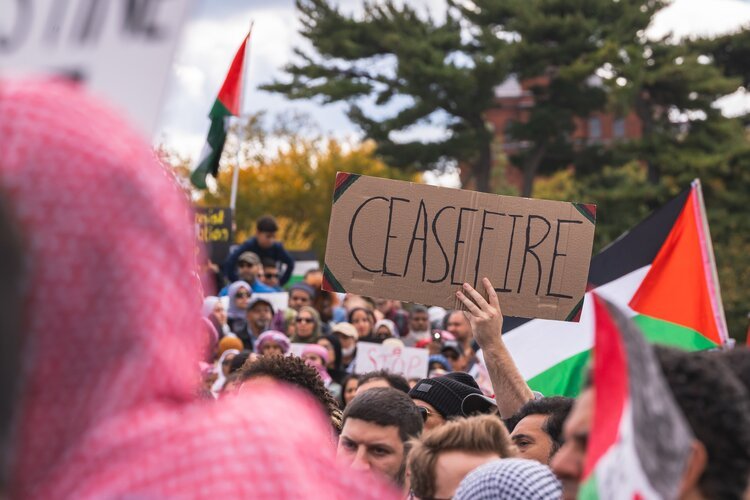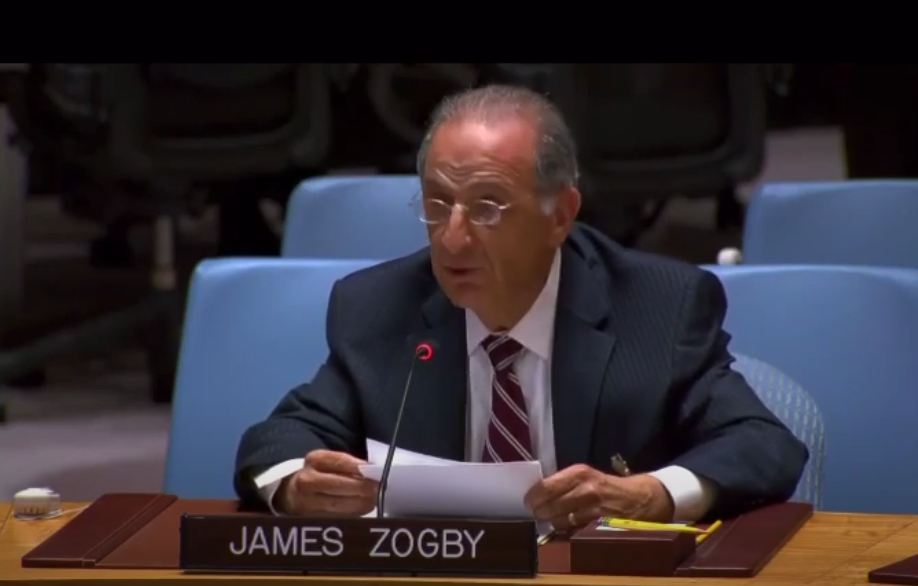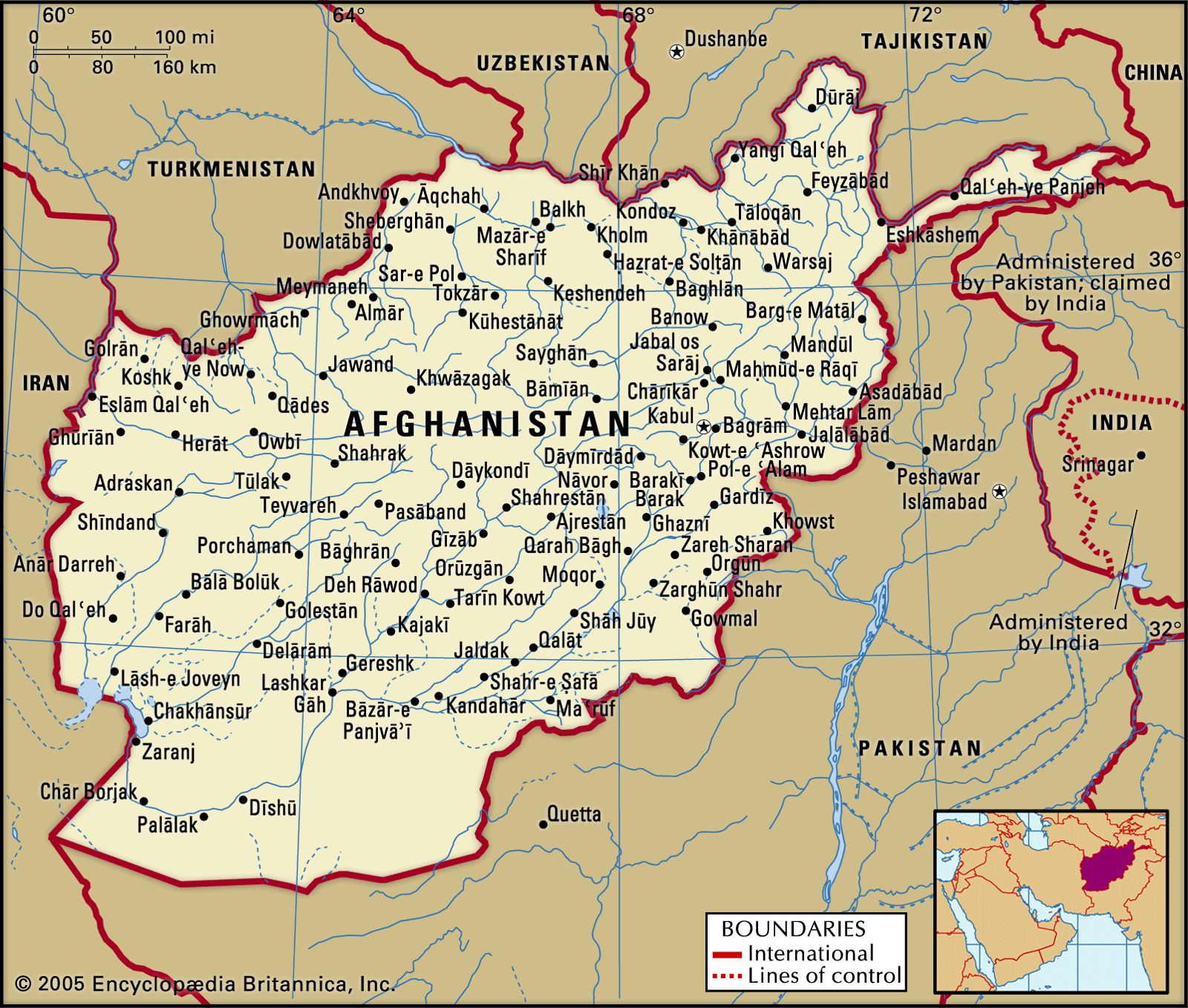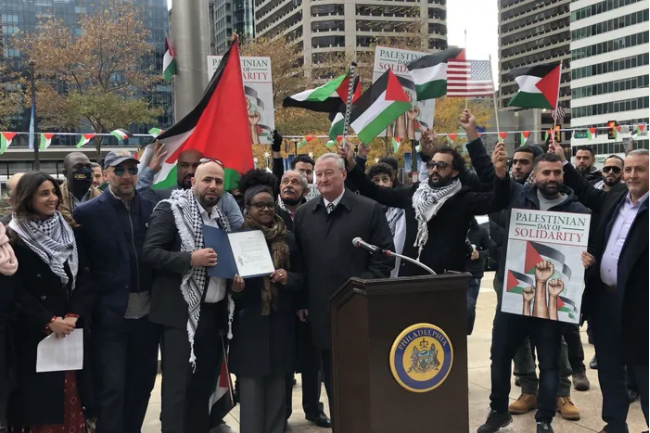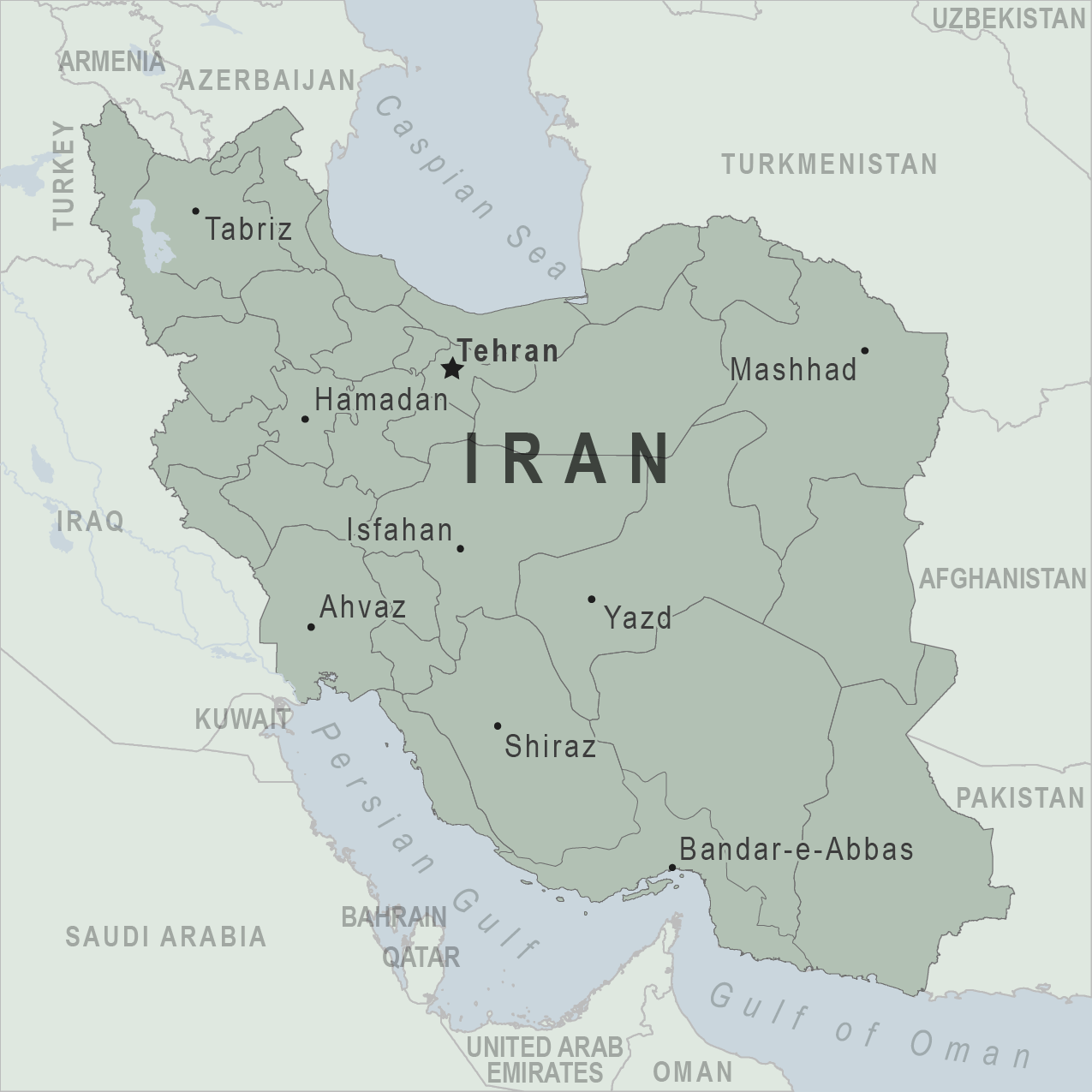Washington Watch Articles for 2020 to 2026
Since 1992, Zogby has written a weekly column on current events and U.S. politics.
This column, Washington Watch, has been published around the world in fourteen countries.
Beginning in 2020, Zogby began weekly conversations titled, “Coffee and a Column with Jim,” where he discusses his latest Washington Watch column and engages in conversation with attendees. Coffee and a Column with Jim is live every Wednesday at 2PM Eastern. Unique registration links are available in each Washington Watch column and on social media.
Washington Watch Articles From 2026
When President Donald Trump convened his so-called Board of Peace in Davos, Switzerland, a key item on the agenda was to endorse his son-in-law Jared Kushner’s extravagant (and, I might add, detached from reality) plan for a “New Gaza.” The rendering of Kushner’s scheme shows it to be more of a luxury resort for wealthy tourists than the foundation of a just future for the Palestinian victims of Israel’s genocide. But since the raison d’être of the Board of Peace was supposed to be dealing with the aftermath of Israel’s war on Gaza, the conversation, by necessity, had to address the needs of hundreds of thousands of now-homeless Palestinians.
News broke this week that President Donald Trump was conditioning approval of an infrastructure spending bill on renaming New York City’s Penn Station and Washington’s Dulles Airport in his honor. It was unsurprising because there’s a disturbing pattern in Mr. Trump’s approach to governing that includes the glorification of the leader, the erasure of norms, the use of threats of retribution to stifle critics, and a reliance on “alternative facts” to keep the faithful in tow.
To understand how President Donald Trump promotes his presidency and policies, especially when they are being challenged, it is necessary to understand the impact that New York attorney, the late Roy Cohn, had on his approach to politics and power.
Washington Watch Articles From 2025
Analysts are still working to understand Zohran Mamdani’s decisive victory in last month’s New York mayoral race. Like the blind men in the old Indian story of the “Blind Men and the Elephant,” the explanations offered have been mostly accurate but incomplete.
US voters’ attitudes towards the Israeli Palestinian conflict have changed, but media commentators and political consultants haven’t figured that out. They are stuck in the past with outdated assumptions about the electorate and as a result continue to operate from an old playbook.
In the span of a week, the Trump administration succeeded in passing a United Nations Security Council resolution on Gaza (based on its earlier 20-point plan to end the conflict) and also released a 28-point peace plan for Ukraine. Commentators and critics have noted some similarities between the two initiatives. There are also profound differences that are important to note.
This past week, as guest of a veterans’ group, I traveled to Iowa to deliver remarks on Armistice Day, the day commemorating the end of World War I. Instead of offering comments typical of the day, focusing on those young soldiers who served, fought, and died, my remarks dealt with the impact of that war—in particular on the people of the Arab World, and on the Arab American community. I titled my speech: “How ‘the war to end all wars’ planted the seeds for a century of conflict.”
This past week, as guest of a veterans’ group, I traveled to Iowa to deliver remarks on Armistice Day, the day commemorating the end of World War I. Instead of offering comments typical of the day, focusing on those young soldiers who served, fought, and died, my remarks dealt with the impact of that war—in particular on the people of the Arab World, and on the Arab American community. I titled my speech: “How ‘the war to end all wars’ planted the seeds for a century of conflict.”
In the days after Israel was attacked on October 7, 2023, then-President Biden cautioned Israeli Prime Minister Benjamin Netanyahu not to make the same mistakes the US made following 9/11. Biden never publicly spelled out what he meant, but it was understood as a warning to Netanyahu, in response to the shock generated by the attack, not to overreact or overreach, as President George W. Bush had done by invading and occupying Iraq and proposing a US-led democracy agenda that would transform the Middle East. That war lasted more than a decade with tremendous cost in lives, treasure, and US prestige. It also emboldened Iran and spawned extremist groups across the Levant and North Africa, like ISIS.
In the days before the election for mayor of New York City, a group of rabbis issued a “A Call to Action” attacking public figures like Democratic candidate Zohran Mamdani whom they say “refuse to condemn violent slogans, deny Israel’s legitimacy, and accuse the Jewish state of genocide.”
A century ago, Gibran Khalil Gibran wrote a love poem to Lebanon, "You have your Lebanon, I have my Lebanon."
Last week, the Arab American Institute, Churches for Middle East Peace, and the American Friends Service Committee brought a group of Palestinian Americans with family in Gaza to meet with members of Congress and media.
Poor Syria! That’s an inauspicious start, but it’s honest, as the country is facing myriad problems, internal and external, none of which can easily be resolved.
If US President Donald Trump really wants to earn a Nobel Peace Prize, he’s going to need to do better than his 20-point “Comprehensive Plan to End Gaza’s Conflict.” While in his characteristic style of exaggeration, Mr. Trump called the release of his plan “one of the greatest days in human history,” poring over Arab, Israeli, and US press reveals that most analysts are not inclined to see it that way.
On September 10th, conservative Republican political activist Charlie Kirk was murdered while speaking at a rally on a college campus in Utah. The reactions to his death were immediate and sustained, reflecting the deep divisions that plague American society today.
For too many years now Democrats have focused on winning elections by appealing to what they have termed their “base” (young voters, Black, Latino, and Asian voters, and educated women). At the same time, they have largely abandoned white working class voters to Republicans—one reason why Democrats have lost too many recent federal and local elections across the Midwest and Mid-Atlantic states.
What to do or say about Israel’s war on Gaza has establishment Democratic consultants and the elected officials for whom they work in a tizzy.
Nothing good will come of the chaos that has already been created by the Trump administration. In just a few months, it’s taken a wrecking-ball to institutions, agencies, and programs.
While some supporters of Palestinian rights saw the developments at last week’s meeting of the Democratic National Committee as a defeat, it was, in fact, a victory. Here is what happened at the meeting and why I feel that progress was made.
Even though the bottom has fallen out of Democrats’ support for Israel, some in the party still can’t bring themselves to recognize this reality.
We’ve reached a sort of tipping point in the way political leaders in the West are reacting to Israel’s genocidal assault on Palestinians in Gaza. It’s maddening for two reasons: that it took this long to get an official response from Western capitals; and that, once the magnitude of the tragedy became clear, the responses have been so decidedly ineffectual.
Our understanding of an historical event’s meaning is a function of two factors. The first is what we choose to identify as the starting point leading up to the event. The second is the lens through which we view it.
American political parties are in disarray. Instead of being the engines that organize and drive our politics, their roles have been supplanted by partisan social media influencers, non-profit political groups, super PACs, and the billionaires who fund them and consultant groups they hire.
Any way you look at it, the northern rim of the Arab World is a mess. US politicians, echoing Israel’s position, speak glibly (and dishonestly) of a transformed or new regional order. In reality, the situation has worsened. Israel has accelerated its genocidal war on Gaza, land-grabbing ethnic cleansing in the West Bank, and occupations and deadly bombings of Lebanon and Syria.
Meetings between US President Donald Trump and Israeli Prime Minister Benjamin Netanyahu are more akin to a master class in posturing and duplicity than in diplomacy. Last week’s meetings were no exception.
Last week, the UN was scheduled to convene a special session promoting a two-state solution to the Israel/Palestine conflict. Israel’s attack on Iran and the deadly exchanges that followed resulted in a postponement.
It was 2006 and Tim Kaine had recently won the Virginia gubernatorial election. I was at a meeting at Democratic Party headquarters with a group of party officials. One opined, “I believe that one of the lessons we should learn from Tim Kaine’s victory was that we need to talk more about our religion. Kaine did and he won. We should do it too.”
This week, all eyes will be on the fascinating race for mayor of New York City. One reason it’s so interesting is because New York plays such an outsized role in American life.
A few months after the Democrats’ bitter defeat in the 2024 elections, the party convened an Executive Committee meeting. Instead of taking a long hard look at the reasons for their poor performance, the meeting devolved into an orgy of self-congratulations.
The Israeli government of Benjamin Netanyahu is setting the stage for the upcoming United Nations’ International Conference for the Peaceful Settlement of the Question of Palestine and the Implementation of the Two-State Solution.
The murders of two young Israeli Embassy staff members, Sarah Milgrim and Yaron Lischinsky, shook Washington and provoked conflicting reactions. What follows are some observations on the murders and the disturbing way they were viewed and used by pro-Israel organizations and a few pro-Palestinian advocates.
One thing of which we can be certain is that there will be consequences to the genocide in Gaza.
Followers of policy and political developments in Israel/Palestine must be struck by the degree to which the tactics employed are disconnected from desired ends and by how some leaders’ and movements’ obsession with their mistaken path distracts them while they dangerously march themselves and their followers off a cliff.
Washington Watch Articles From 2024
This afternoon, I went for a walk and noticed that a homeowner had recently placed a sign on their front lawn. It simply read “I stand with Israel.” If this had been 400 or so days ago, I would have thought nothing of it. Back then, supporters of Israel were still reeling from the shock of the October 7th attack and felt a need to express themselves.
The scene at the Paul VI chapel in the Vatican’s St Peter’s Square was quite moving. Pope Francis had come to thank those who had donated the chapel’s Christmas tree and the carved life-sized figures that depicted the birth of Jesus that had been set up at the foot of the tree.
Democrats are still reeling from the shock of losing to Donald Trump for the second time in the past three elections. There’s quite a bit of finger-pointing and soul-searching taking place, with both journalists and activists writing “autopsies” to understand both the reasons for the defeat and what lessons can be learned moving forward.
It’s disturbing how the US news media flits from story to story, seemingly incapable of sustaining attention on events that require it.
This past week, Israeli, Lebanese, and US leaders were busy patting themselves on the back announcing the completion of an Israeli/Lebanese ceasefire agreement.
History will not be kind to the presidency of Joseph Biden when it evaluates his administration’s handling of Israel’s genocidal war on Gaza. At best, his response will be judged weak and feckless. At worst, he will be seen as enabling of or even complicitous in the crimes committed.
One century ago, when Western European powers were planning to carve up the Arab East, the US attempted to convince them to take a different path.
My reaction to Donald Trump’s recent victory was very different than the one I had when he was first elected in 2016. Back then, I was deeply upset about how it was that we had elected a narcissistic, misogynistic, xenophobic, inciter of violence. And I was anxious about what his presidency would portend for our future.
The Middle East conflict and this year’s US presidential election are impacting one another in important ways.
This presidential contest has generated an intense debate within the Arab American community. If it were a normal election year, I’d be out in the field urging my community to vote for Democrats. I’d be warning Arab Americans that we needed to do everything we could to stop Donald Trump from re-entering the White House.
In the run-up to the November election, we are witnessing a massive expenditure of “dark money” in a disinformation campaign designed to depress the Arab American vote in Michigan and the American Jewish vote in Pennsylvania.
It’s galling to hear policymakers in the US, Israel, and elsewhere suggest that the devastating blows Israel has dealt to Hezbollah and Lebanon have created “an opportunity to put Lebanon on a better path.”
On October 7th, the continuing genocide in Gaza and the massive bombings in Lebanon will likely be ignored by US officials and media outlets as they solemnly commemorate the anniversary of Hamas’ attack on Israel. What they’ll ignore is that the history of the Israeli-Palestinian conflict didn’t begin on October 7th, nor did the suffering end on that day.
For Arab Americans, Israel’s war on Palestinians in Gaza looms large and will play a significant role in this November’s election. This is one of the key observations emerging from a mid-September nationwide poll of 500 Arab American registered voters conducted by John Zogby Strategies for the Arab American Institute.
Our politics and system of governance is in crisis. This was made clear this past week before and during the US Senate Judiciary Committee’s hearing on hate crimes in America.
In the 1960s, social critic Paul Goodman offered a parable to describe what had gone wrong with American higher education.
If Kamala Harris, the Democratic nominee for US president, were to take a decisive stance demanding that Israel agree to an immediate ceasefire and unimpeded aid to Palestinians, she would expand her vote lead over her Republican opponent, Donald Trump.
The headlines emanating from Palestine-Israel, though ominous, should have been expected. The problem, of course, is that the Israeli government appears intent on making a desperately bad situation worse, and the administration of US President Joe Biden is acting as if doing what it’s been doing for the past three-and-a-half years is something other than pouring petrol on a raging fire.
The 2024 Democratic National Convention was an exhausting roller coaster ride for Arab Americans and supporters of Palestinian rights. It was a messy affair, with highs and lows, some small victories and some setbacks. But on balance, the naysayers are wrong, because Palestine and supporters of Palestinian rights were big winners during the four days in Chicago.
Democrats are approaching their 2024 convention aware of the many critical issues at stake in this election. There is deep concern with what a second Trump administration would mean for women’s rights, civil rights, environmental protections, immigration policy, civil discourse, and the very foundation of our democratic order. All of these issues and more are discussed at length in the 2024 Democratic Party Platform and will be addressed by an assortment of speakers at the convention.
Why—in the midst of critical negotiations to implement President Biden’s plan to bring about a ceasefire in Gaza, release Israelis held captive by Hamas and a significant number of Palestinians held by Israel, and move toward a negotiated permanent end to the conflict—would Israeli leader Benjamin Netanyahu decide to assassinate the chief Hamas negotiator while he was visiting Iran? And why—while the US says it was working to deescalate tensions with Lebanon’s Hezbollah—would Israel choose to up the ante by assassinating Hezbollah’s number two?
Israeli Prime Minister Benjamin Netanyahu’s visit to the US to address a joint session of Congress provided us with a lot to digest. It was his fourth such invitation—more than any other world leader in history (surpassing the UK’s Winston Churchill who made the trans-Atlantic trek to address Congress on three occasions).
Even before US President Joe Biden dropped out of the race on Sunday, November’s presidential election had become a dizzying rollercoaster ride.
This week, I submitted testimony on Israel/Palestine to the Democratic Party’s Platform Committee. This is my 11th convention and the ninth time I’ve been engaged in discussions regarding the platform, either as a member of the drafting committee, negotiating language with the campaigns, or simply presenting testimony, as I am doing this year.
While there has long been concern about President Biden’s age and his ability to run an effective campaign, many Democrats have resisted any discussion of replacing him at the top of the ticket. They recognize that the president’s record on domestic issues has been a good one on which to run. They know that his persona directly challenges former President Trump’s appeal with white working-class voters in key battleground states. And they are afraid of the uncertainties that might accompany his stepping down.
Last week, New York Democratic Representative Jamaal Bowman was defeated in his bid for a third term in Congress. In describing the outcome, newspaper headlines and media analysts only scratched the surface of why and how this happened and the consequences this contest would have on future elections.
After eight months of the Biden administration’s frustrating moves toward Israel’s war on Gaza, in recent weeks they unveiled the most confounding move of all.
June is National Immigration Month in the United States—an appropriate time to reflect on the special role immigrants have played and continue to play in enriching this country.
More often than not, those in the media take a simplistic view of political polls. Especially in a presidential election year, attention tends to be singularly focused on who’s up and who’s down.
On Monday, May 27, Israel appeared to “apologize” for the deaths of 45 Palestinians resulting from its bombing raid on a “humanitarian zone” in Rafah. By any measure, it was a backhanded apology that conveyed more insult than atonement.
Washington Watch Articles From 2023
With genocide unfolding in Gaza, Christians in the Holy Land are having a difficult time feeling joy this Christmas season. Bethlehem has canceled its traditional celebrations. There will be no tree-lighting or festivities.
Events of the past week have highlighted how the US’ feckless indulgent behavior toward policies pursued by Israel have damaged America’s standing in the world. Two United Nations votes calling for a ceasefire in Gaza showed the US has been abandoned by most of our closest allies, many of whom are increasingly questioning our global leadership.
It’s been more than two months since Ukraine was a front-page news in the US press. It had become an old story and was being displaced by the horrors unfolding daily in Gaza.
In recent weeks, the Biden administration has attempted to pivot from its initial unconditional support for Israeli actions in Gaza by combining caution with a vague plan for “the day after.”
Almost two months into this monstrous conflict in Gaza and it is clear that the war is being fought not only on a battlefield but over the very terms that can be used to speak about it. Pope Francis discovered this last week when he described what was unfolding in Gaza as “going beyond war, this is terrorism,” and reportedly noted that “terrorism should not be used to justify terror.”
Several events that have occurred in the past few weeks should make us pay attention to the frightening reality we are in when it comes to freedom of speech regarding Israel/Palestine. We are on precarious ground.
The war over Gaza has had an explosive and surprising impact on the cohesion of the Democratic coalition. For decades now, the American body politic has been fractured mainly over critical social and cultural issues ranging from race and gender to guns and immigration—more often than not with Republicans on one side and Democrats on the other. Only in rare instances have foreign policy concerns entered the equation and never in the way that Israel/Palestine has in recent weeks.
I’ve been organizing Arab Americans for almost a half century. For the past three decades, working with my brother, John Zogby, we've polled the community’s views on a range of political topics. I’ve learned to value polling because it opens a window and allows you to hear and understand what people are saying and what their views may portend for the future.
In recent years, US pro-Israel groups have been pursuing a multi-pronged strategy designed to stifle discourse about Israeli policy and Palestinian rights. They have done so because for the past three decades there has been an erosion of support for Israel, coupled with growing support for Palestinians.
There have been too many comments from Israeli political, military, and religious leaders suggesting that all Palestinians are legitimate targets because they support Hamas or that they voted for them and are, therefore, guilty of that group’s many crimes.
Looking at the unfolding horror in Gaza, I am reminded of two important lessons that should have been heeded by Hamas, Israel, and the US.
It has been horrifying to watch this most recent iteration of wanton violence in the Israeli-Palestinian arena. But it should not have been unexpected. What can also now be expected is that the horrific murders carried out by Hamas on day one will be more than matched by Israel as it proceeds to use its massive military power to massacre thousands of captive Palestinians trapped in the Gaza Strip.
Dear President Biden, I received a call on Tuesday night from a senior official in your administration giving me a heads-up that the next morning the US was going to formally announce that Israel was to be admitted into the Visa Waiver Program (VWP). He knew I had been concerned with Israel’s application for membership because of its history of discriminatory treatment of Arab Americans, and so he said, “I know you are disappointed.” I replied, “I’m not disappointed. I’m insulted and angry.”
In case you haven’t noticed, American politics are a dysfunctional mess. You might be excused for missing this sad reality, as the US never tires of chiding other countries for their lack of democratic institutions or their failure to adhere to or protect democratic values.
The breakthrough of the Oslo Accords wasn’t to be found in its details. Rather it was in the opening sentences, in which the Israeli government and the Palestine Liberation Organization recognized one another’s legitimacy as representatives of two separate peoples and as negotiating partners.
As we approach the 30th anniversary of the signing of the Oslo Accords, there will be commentary galore about how the accords failed. There’ll be predictable finger-pointing. Some of it will ring true, but most will miss the point.
When I attend next month’s meeting of the Democratic National Committee, it will mark my 30th year as a member of that body. As an Arab American and one of the longest serving DNC members, I have a story to tell.
If we’ve learned anything during the leadup to the 2024 Republican primary contests, it’s that the Republican Party no longer exists—either as a body that represents, organizes, and governs its members and candidates, or as a policymaking entity that shapes the ideas around which Republicans coalesce.
There has been a great deal of commentary about a possible US-engineered Saudi-Israel normalization agreement: what it would actually do; whom it might benefit; and, most importantly, whether any such arrangement is even possible given current political realities in the US and Israel.
In the days that passed between the death and burial of Sinéad O’Connor, there was an outpouring of praise for the Irish singer. News accounts and op-eds in major media in the US and Ireland made note of her courageous and prophetic voice. If there is a lesson to be learned from Sinéad’s life and the reactions to her passing, it is the importance of calling institutions and nations to account for past sins and the benefits that can accrue to future generations when such a reckoning occurs.
On August 4, 2020, I was bracing for my 53rd wedding anniversary—the first following the death of my wife, Eileen—when news broke of a massive explosion in the Port of Beirut. Thousands of tons of ammonium nitrate, stored in the port’s grain silos, detonated causing the largest non-nuclear blast in modern times. The death toll was 240, with more than 7,000 injured and 300,000 left homeless.
At the recently concluded NATO summit, while member states displayed continued resolve to provide Ukraine the material and political support needed to counter Russia’s assault, they would not agree to Prime Minister Zelenskyy’s demand to an expedited Ukrainian entry into NATO.
News last week that the US and Israel were about to sign a Memorandum of Understanding (MOU) advancing Israel’s entry into the US Visa Waiver Program (VWP) shouldn’t have caught us by surprise. But it did. For months, we had been assured by various Biden Administration officials that Israel could not meet the requirements of the program. Concerns focused on the VWP’s statutory requirement that participant governments must guarantee full reciprocity to US citizens seeking entry - without regard to race, religion, or national origin.
This week, I traveled to Chicago for a two-day reunion of Jesse Jackson’s historic 1984 and 1988 presidential campaigns. I was invited to speak on unique contributions he made to America’s foreign policy debates.
Two recent and seemingly unrelated news stories raise serious questions about whether any consistent values undergird American foreign policy. One involves the US response to attacks by Israeli settlers on the Palestinian village of Turmus Ayya. The other is about the Biden administration’s considering shipping cluster bomb munitions to Ukraine.
Last week I was afforded the opportunity to address a special United Nations Security Council Session on Palestine. The invitation had been extended by the UAE UN Ambassador HE Lana Nusseibeh, in her capacity as president of the Security Council.
That some Biden administration officials appear to be in a rush to admit Israel into the U.S. Visa Waiver Program (VWP), which allows for mutual, short-term entry between participating countries and the U.S., is both baffling and insulting.
Much has already been written regarding the indictments against former President Donald Trump. The crimes he is alleged to have committed have been examined. And his defense that this is a partisan political attack to derail his candidacy has been thoroughly critiqued.
No sooner has one American election cycle ended than another begins. Those just elected begin raising money for the next round, while their consultants get busy advising them on which issues will be good for their reelection. As a result, the focus of our political debates and elections are more often than not driven by crass posturing geared toward a candidate’s personal or partisan advantage and less by serious policy concerns that serve our current and future needs.
In recent weeks, there have been a number of irresponsible op-eds pressing the Biden administration to supply more advanced US weapons to Ukraine, arguing that the only acceptable outcome to the conflict is a “total Russian defeat.” It is maddening how often these “pundits” have wrongly sought to justify the expanded use of force in conflict zones.
Washington Watch Articles From 2022
All religions are, at their core, about us—about real people living in a world with others, trying to make sense of our joy and sorrow, our fears and hopes, and our purpose for being here. When looked at this way, the stories told in our scriptures, when stripped down to their essential message, teach us beautiful lessons about how we should see our lives.
This past week we passed the 10th anniversary of the day when an obviously deranged young man wielding a weapon of war massacred 20 little children and six of their teachers at Sandy Hook Elementary School in Newtown, Connecticut. We had had mass shootings before. But this time it felt different because the victims were so little and so many, and because President Barack Obama so eloquently, and tearfully, spoke to the nation capturing our collective grief and the resolve that “our hearts had been broken” too many times and that something must be done to end the killing.
Christmastime 1914, five months into the First World War, a remarkable event occurred. No one knows exactly how it began, but French, British, Belgian, and German soldiers on both sides of the trenches began singing Christmas carols, each in their own language, and then put down their weapons, played football, and exchanged Christmas greetings and gifts with one another.
Since its founding, Political Zionism has had two distinct and contradictory personas. One portrayed it as a national liberation movement that was liberal, democratic, tolerant, and inclusive. This was the face its adherents saw when they looked in the mirror, and it was the way they presented themselves to and wanted to be seen by the rest of the world.
The brilliant and incisive Palestinian American professor, Dr. Ibrahim Abu Lughod, was a mentor who taught me some invaluable lessons about politics and history. While he was a profoundly political being, he was at heart a historian and social scientist. He, therefore, cautioned me not to be unduly influenced by each day’s headlines or the reactions of commentators to daily events.
By itself, the announcement that the FBI will conduct an independent investigation into the murder of Palestinian American journalist Shireen Abu Aqla is not, as one Israeli journalist said, a “watershed moment” in the US/Israel relationship. But because of the factors that led to this decision and the tensions that will flow from it, it’s clear that there are changes underway in US attitudes toward Israel and its behaviors.
Much ink has been spilled before and since the US midterm elections, with most of it missing the mark. Pundits who had unrealistic expectations regarding the outcome are now reacting in shock (or horror or delight, depending on their political persuasion) as their projections have been found wanting.
When future historians write about America’s Middle East foreign policy during the last quarter century, it must include a lengthy chapter entitled “American Hubris.”
All indications are that this election will be a nail-biter, with polls suggesting that Democrats will have a difficult time maintaining their slim control of both houses of Congress. One factor is the president’s low approval ratings—often an indicator that his party would be sailing into the headwinds of a dissatisfied electorate. But there are other issues at work, as well.
This past week, a major US daily paper ran a lengthy feature article titled, “France’s Return of the Skulls of 24 ‘Resistance Fighters.’” The article reported on France’s repatriating 24 skulls to Algeria that were reputed to be the decapitated heads of Algerian resistance fighters. The piece was both shocking and infuriating.
During the past month Israel has held 800 Palestinians under administrative detention orders, expelled several Palestinians from East Jerusalem, seized more Arab-owned land from areas around Hebron and in the Jordan Valley turning much of it over to settlers, and instituted a lockdown of many Palestinian areas during Jewish religious days. All of this passed without notice in the US press because Israel policies, such as these, have long been routine features of the 55 year-long occupation.
Russia’s latest and expanded invasion of Ukraine is entering its eighth month with no clear end in sight. Although it’s dangerous in the heat of battle to make predictions about outcomes, there are some indications as to what the future may hold for the combatants and the world.
In less than one month, Israel will hold its fifth national elections in four years. The Israeli press is filled with endless commentary, reports of polls showing who’s up and who’s down, early finger-pointing assessing blame, and, through it all, a pervasive sense of gloom acknowledging that whatever the vote tally, the future will be no brighter or more certain than the present.
While pundits will be focused on which party retains control of the Senate and Congress, there is a deeper issue at stake in this election - the polarization that has made our political dysfunctional.
While the November midterm elections will be about a number of economic, social, and political issues, at its core the elections will be about which party and candidate voters feel cares most about them and has solutions that speak to their most basic needs.
Here’s a story I’ve never told before:
I traveled to Tunisia in late 1993 to meet with PLO Chairman Yasir Arafat.
Back in the 1960s Americans were deeply divided on matters of war and race—and Christians in America were on both sides of the divide.
As someone who polls Arab public opinion, I’ve long been a fan of the 1919 King-Crane Commission created by President Woodrow Wilson to assess how the people of the Arab East wanted to be governed in the post-World War I era. The British and French had designs on the Arab East, but Wilson, though an arch-segregationist at home, declared that the newly liberated Arabs should shape their own destiny and that any post-war settlement regarding “territory [or] sovereignty [should be determined on] the basis of the free acceptance of that settlement by the people immediately concerned.”
Three decades ago, I was on a US Embassy-sponsored speaking tour in Yemen before its 1993 national elections. After giving a lecture at the university in Sanaa, I met with the leaders of the various political parties—at their offices or at afternoon “ghat sessions.”
In 2020, I published “Arab Voices: What They Are Saying to Us and Why It Matters.” Based on our polling during the first decade of this new century, “Arab Voices” was an effort to lay out the myths that have shaped Western discourse about the Arab World, understand why those myths have taken hold, and what can be done to dispel them.
Twenty years ago when Congress passed the bipartisan McCain-Feingold bill on campaign finance reform , many celebrated what they hoped would be a new era in US politics. There were limits set for individual contributions and those of political action committees. All contributions in federal elections were to be reported to the Federal Election Commission and made available for public scrutiny. There was also a taxpayer fund established that would allow presidential candidates, if they wished, to secure matching funds for lower-level contributions to their campaigns, if they accepted a limit on their overall spending.
Fifty years ago this July, Israel assassinated Ghassan Kanafani. They planted a bomb in his car killing him and his 17-year-old niece, Lamis. Over the years I’ve thought a lot about Ghassan, his significant contributions to Arab literature, my meetings with him, and the role he played in shaping my doctoral dissertation and my thinking about Palestine.
Only naive souls or blind ideologues could have thought that Russia’s aggression against Ukraine would end well. It will not. And the longer it continues, the worse the situation will be for everyone.
The Biden administration’s approach and media coverage given to the president’s visits to Israel/Palestine and Saudi Arabia were starkly contradictory.
President Biden’s upcoming visit to Saudi Arabia and the involvement of a Saudi investment fund in a new start-up golf association have provoked a rash of harsh commentary.
Maya Berry, the executive director of the Arab American Institute, was in the Middle East earlier this month with her children. She had taken them to her ancestral home in Lebanon while in the region for work-related meetings.
As important as the January 6th hearings in Congress may be in laying out, for the historical record, the facts behind the insurrection that attempted to violently overturn the 2020 election, there are two reasons why it may also be an exercise in futility.
Last week, Mary Lou McDonald, the President of Sinn Fein, the Irish republican/socialist party, and leader of the opposition in the Irish Parliament, addressed a European Union conference.
While the GOP’s internal battle is all about Trump and Trumpism, the conflict playing out on the Democratic side is between the party’s moderate and more progressive wings, and comes in two distinct forms.
Washington Watch Articles From 2021
Since the United States withdrawal from Afghanistan, I have received questions from a number of journalists, both American and Arab.
The Christmas story as it is told in the West contains timeless elements that have shaped our culture in significant ways.
When news of Covid-19's Omicron variant broke a few weeks back, my daughter sighed and said "I give up.”
This past week, on November 29th, the City of Philadelphia officially celebrated the "International Day of Solidarity with the Palestinian People."
Like many Americans, I was overjoyed by news that a Georgia jury had found three white men guilty of the murder of Ahmaud Arbery, a young Black man.
It has been 300 days since Joseph Biden was inaugurated president. There's no question that he's had a rough go of it.
Most policymakers and pundits are confounded by what to do about Lebanon. They ask: “What do the Lebanese people want? How strong is the hold of the sectarian elites and Hizbollah over the population? And is change even possible in Lebanon?”
There are many stories that will be written about the meaning of the 2021 elections, but for me the most important news was Abdullah Hammoud's victory as the mayor of Dearborn, Michigan.
Once again, gallons of ink are being spilled on articles arguing for and against US efforts to secure a new nuclear weapons pact with Iran.
I'm not going to contest the oft-repeated notion that democracy is the best form of government, but I am going to observe that the way democracy is being practiced in the US and Israel is testing its wisdom.
Washington Watch Articles From 2020
With Joe Biden as President-elect and Donald Trump soon leaving the White House, analysts are engaging in endless speculation about what this change in administrations will mean for the future of the JCPOA – the “nuclear deal” negotiated between the P5+1 and Iran.
In the very month in which I read articles condemning the “cancel culture” – which some apply exclusively to the “left’s efforts to silence or shame views with which they disagree” – several disturbing incidents caught my attention.
If finding a resolution to the Israeli-Palestinian conflict weren’t difficult enough, the Trump Administration and the Netanyahu government seem hell bent on making this already bad situation even worse.
The election is, in fact, over and Joe Biden won and has been certified by enough states to make the outcome irreversible. Nevertheless, the transition will not go smoothly, as Donald Trump is placing obstacles in the path of the president-elect.
Any discussion of Arab Americans must consider, at the outset, both the deep diversity as well as the shared attitudes and concerns that exist within the community. As is the case with most ethnic groups, Arab Americans are not a monolith.
As I sit to write this piece four days after the election, Joe Biden is leading in enough states to make it clear that he will win enough electoral college votes to become the 46th President of the United States. What was also clear is that Republicans will likely retain control of the Senate and the Democrats, while still the majority in the House, have lost some of the seats they had picked up in 2018. We are a deeply divided country. That much should be clear.
When they go to the polls to cast their ballot for President of the United States, 59% of Arab Americans say they will vote for Democratic candidate Joseph Biden with only 35% supporting the reelection of President Trump. This is one of the findings of a nationwide poll of 805 Arab American voters conducted by the Arab American Institute during the second week of October 2020.
During the past century, we have witnessed a long and tragic history of domestic policies that have targeted persons of Arab descent. We’ve been subjected to discriminatory treatment by law enforcement, immigration authorities, and by both Democratic and Republican Administrations. In addition to these hurtful policies, it is important to note the role played by the scapegoating of Arabs in American politics.
Donald Trump isn’t the first politician to use demonization of foreigners, whether Arabs or Muslims, as a campaign tactic. And his administration isn’t the first to implement policies that have adversely affected these communities. But while we have a century of such policies, the Trump era has elevated them to a level so dangerous it is imperative that they now finally be confronted and defeated.
In the weeks following the signing of agreements between Israel and the UAE and Bahrain, I was struck by the some of the commentary by Israeli and Palestinian writers and analysts. While the views expressed by each side were polar opposites and equally hyperbolic, they were both were wildly wrong.
